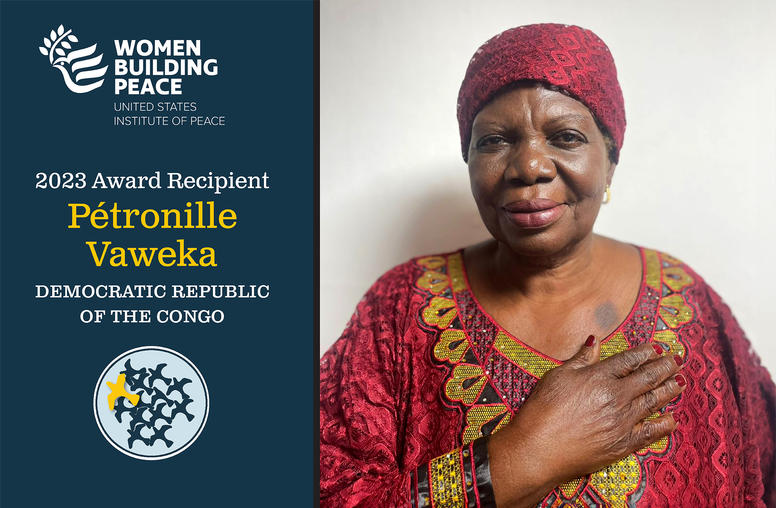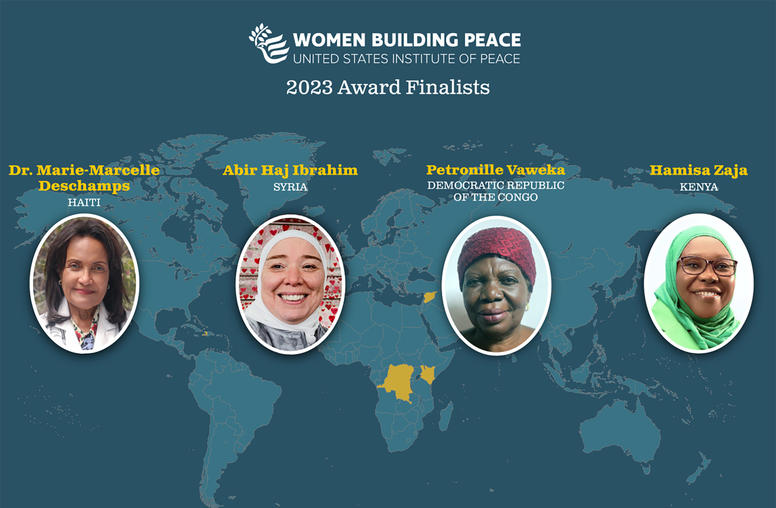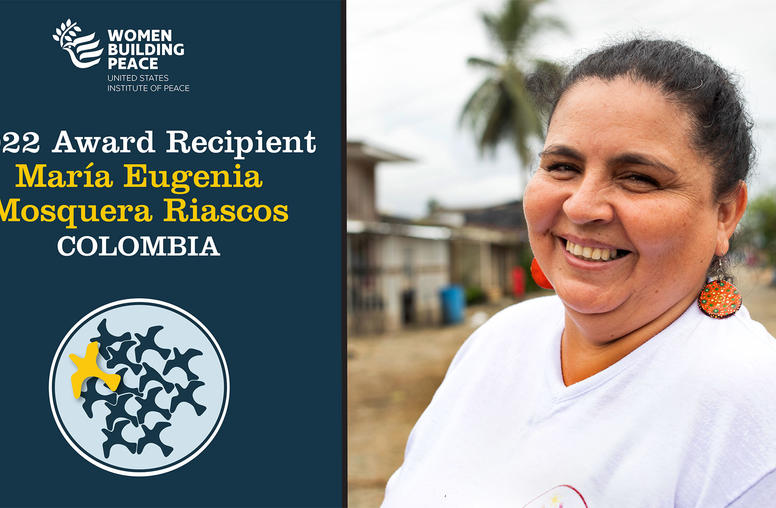Defining the "Vital Role" for the United Nations in Iraq
Institute Newsbyte examines potential roles for the United Nations in post-war Iraq.
WASHINGTON—On April 8, President Bush and British Prime Minister Tony Blair affirmed, "The United Nations has a vital role to play in the reconstruction of Iraq." Just the day before, UN Secretary General Kofi Annan noted, "There are lots of areas where the United Nations can play a role, but above all the UN involvement does bring legitimacy which is necessary, necessary for the country, for the region and for the peoples around the world."
To assess the various roles that the United Nations might usefully play, the U.S. Institute of Peace organized an exchange of views among prominent authorities and experienced practitioners on April 11. The consensus emerging from that discussion was that the United Nations has a range of unique capabilities to help the allied coalition and Iraqi citizens with the recovery process and to reconstitute the country's government, economy, and society. Some steps can be taken immediately, while others will require a new mandate by the Security Council and significant lead time for planning and funding.
The views summarized below reflect the discussion at the meeting; they do not represent formal positions taken by the Institute, which does not advocate specific policies.
What the United Nations Is Unable to Do
- Given its limited resources and the lag time involved in recruiting personnel from member states, the United Nations does not have the capacity to administer Iraq during the interim period before a new indigenous government is established.
- The United Nations cannot provide a solution to the current void in public security; mobilizing international peacekeepers or constabulary would take months.
- The United Nations cannot reconstruct Iraq by itself. While the United Nations can make helpful contributions, reconstruction will require sustained engagement from bilateral donors and international financial institutions throughout the international community.
What the United Nations Can Do Immediately
Where UN agencies excel is in urgent humanitarian assistance, donor coordination, and technical assistance. Some tasks the United Nations can undertake right away include:
- Helping to secure and destroy weapons of mass destruction: UN weapons inspectors have an ongoing mandate to undertake this task. The United Nations Monitoring, Verification, and Inspection Commission's (UNMOVIC) participation in coalition weapons-hunting work would lend credibility to weapons of mass destruction (WMD) discoveries. Verification by UNMOVIC that Iraqi weapons of mass destruction have been destroyed is also a condition for the removal of sanctions, necessary to rebuild Iraq's economy.
- Providing food: Before the war, 60 pecent of Iraqi households received international food assistance. The United Nations established an infrastructure for food distribution in Iraq under the Oil-for-Food program. This network was run by the UN's World Food Program, although in much of Iraq it was administered by Ba'ath party officials. The Oil for Food program is authorized and under the authority of the UN secretary general until May 12, with a renewable mandate.
- Coordinating and delivering humanitarian assistance: The UN Office for Coordination of Humanitarian Assistance is well positioned to coordinate aid work between non-governmental organizations (NGOs), governmental and intergovernmental aid agencies, and the coalition forces on the ground. The United Nations has a full range of agencies, including the UN High Commissioner for Refugees, the World Health Organization, and UNICEF, that are experienced in urgent humanitarian relief. Their work does not require a new UN Security Council resolution.
- Planning for economic reconstruction: The World Bank, the UN Development Program, and other UN agencies can begin to assess Iraq's reconstruction needs now, without any new Security Council action. The United Nations has a unique capacity to convene donors' conferences, secure pledges of financial support, and develop a common international vision for reconstruction. The United Nations can also terminate its dispensation of compensation claims dating from the 1991 Gulf War to free up Iraqi revenues for reconstruction. The claims are estimated at $150-350 billion.
What the United Nations Can Do in the Future
- Help legitimize the formation of a new government: A special representative of the secretary general could play a vital enabling role by mobilizing international support behind the Iraqi transitional administration and behind the process of building a new Iraqi government. UN participation in the constitutive process would encourage all Iraqi factions to participate, reassure Iraq's neighbors, and reduce the likelihood that the new government will be viewed as an American puppet. Later on, UN experts can help Iraqis determine the best timing and structure for elections and oversee voter registration and election-day balloting. All of these tasks would require new Security Council authorization, however.
- Promote the rule of law: After decades of totalitarianism, Iraqi society needs to develop a legal system that treats all citizens equally and fairly. The United Nations, with appropriate mandates from the Security Council, can help in many ways: training police, judges, prosecutors, prison officials, and human rights monitors; creating special courts to try war crimes and politically charged cases; and soliciting volunteers from among Arabic-speaking judges, translators, and experts in other countries. International assistance in this area is particularly important to avoid the charge that the coalition is imposing "victors' justice" on former Ba'ath Party officials.
- Contribute to public security: The UN Department of Peacekeeping Operations can recruit police units trained to perform crowd control and other "non-lethal" security functions that fall between the capacity of individual police and combat forces. This would require a new mandate and immediate steps to mobilize the required resources.
Conclusion
The advantages to the United States for a UN role in Iraq are clear: essential expertise and assistance in meeting urgent humanitarian needs, as well as international legitimacy and multilateral support for the reconstruction process and its outcomes. While it cannot govern Iraq the United Nations has a proven track record in many necessary areas and can help prepare the way for a new Iraqi government. UN involvement is vital for the Iraqi people, for the coalition, and for the international community at large.
This Newsbyte was written by Mike Dziedzic, a program officer in the Institute's Research and Studies Program. The views summarized above reflect the discussion at the meeting; they do not represent formal positions taken by the Institute, which does not advocate specific policies.


